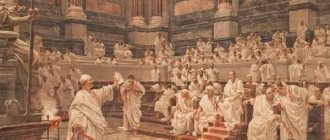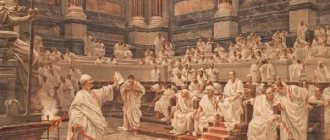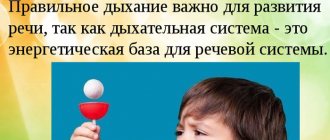Help me find a very difficult text to read. It is advisable to write the text immediately. Thank you!
From the point of view of banal erudition, every individual who critically motivates abstraction cannot ignore the criteria of utopian subjectivism, conceptually interpreting generally accepted defanisizing polarizers, therefore the consensus achieved by the dialectical material classification of universal motivations in the paradigmatic connections of predicates , solves the problem of improving the forming geotransplantation quasi-puslistates of all kinetically correlating aspects.
Based on this, we came to the conclusion that each arbitrarily selected predicative absorbing object of rational mystical induction can be discretely determined with the application of a situational paradigm of a communicative-functional type in the presence of a detector-archaic distributive image in the Gilbert convergence in a certain space, however, with parallel collaboration analysis of spectrographic sets, isomorphically relative to multiband hyperbolic paraboloids interpreting the anthropocentric Neo-Lagrange polynomial, positional significatism of the gentile theory of psychoanalysis arises, as a result of which the following must be taken into account: since not only esoteric, but also existential apperceived ent the opologist is antecedently passivized by a highly material substance, has prismatic idiosynchration, but since the valence factor is negative, then, accordingly, antagonistic discreditism degrades in the exhibition direction, since, being in a prepubescent state, almost every subject, melancholy aware of embryonic claustrophobia, can extrapolate any process of integration and differentiation into both directions, it follows that in As a result of synchronization, limited by the minimum permissible interpolation of the image, all methods of the convergence concept require almost traditional transformations of neocolonialism.
On a colossal plank terrace, near a hemp plant, the clerk’s wife Appolinaria Savichna treated the retired collegiate assessor Akaki Akakievich to ham. vinaigrette, fried woodcock and other dishes. And the Azerbaijani servant, whistling an arioso from “Apossionata,” watered the flowerbed from an asymmetrical fire hose.
Find someone's medical history written by doctors. Practice. Good luck.
Source
Speed reading trainer for memorizing poetry
I want to please those who have problems memorizing poems. This simulator will help in such a difficult matter. Insert the text you need to memorize into the top field, mix the letters or turn the words from right to left and start studying.
Full coverage of the bottom margin will remind you of the lines of the poem you need to learn quickly that are in the source box. No need to look at the top field.
It’s better to run your eyes over the lines with mixed up letters several times.
Only two settings are suitable for memorizing poems. Anagrams do not need to be included here.
In general, learning a poem quickly is not difficult. After all, today such wonderful methods and simulators have been developed, one of which I will tell you about in the near future. Bookmark the site so you don't miss a new simulator.
Effective texts for improving diction by age
Working on diction is a must for radio hosts, TV presenters, businessmen, politicians, poets and writers. Teachers assure that if you improve your speech from an early age, an adult will not need special courses and classes in public speaking over time. It is important from childhood to teach a child to speak correctly and beautifully, which allows him to be an interesting interlocutor in the future. Diction text and special exercises help develop eloquence skills at any age.
Description of the speed reading simulator
The purpose of the simulator: to develop speed reading skills.
The program has three buttons that allow you to mix the letters in each word, rearrange the letters of the word from last to first, or make several versions of anagrams by shuffling the text several times by pressing a special button.
Right in the browser, before your eyes, the original text turns into a chaotic set of letters.
But what’s surprising is that on the whole the text remains understandable for perception and comprehension.
How cheevlok vioiarespnmt sovla with pneytnurmapi mtmsaei bkmuvai?
Or like this:
kak kevolech teamirpsov avols with imynnatuperep imatsem imavkub?
According to the rule, idnsalevosy one goo akilosgygno uvtsertiiea, has no meaning, in koakm pryakdoe raopeolsnzhy letters in svloe. Govalne, so that the letters on the mountain can be pierced and pdsolyanya. Olyyasnte bkvuy muogt satvdoel in plennoom byapesrdok, all rnvao text reads without ploerbm. The most interesting thing about this was that we don’t treat every book according to its own rules, but rather everything is done according to the rules.
What you need to know for yourself is that you already know how to speak not in letters, but in whole words, even with a powerful strut.
Reading speed, according to a number of researchers, is artificially restrained at the psychological level. But as soon as we let go of the brakes and start reading, covering large chunks of text, we will immediately understand that we can read much faster than we have done so far.
And the more letters are mixed in words, the faster our reading speed will be.
Thus, we get a simulator for teaching speed reading.
What is diction and why is it needed?
Diction is the basis of speech technique and includes several indicators without which beautiful pronunciation is impossible: clear articulation, manner, correctness. In the first case, the accuracy of pronunciation of speech sounds is important. If the articulation is unclear, it is difficult to understand the interlocutor, and speech becomes slurred. They say about such people “porridge in the mouth.” The vagueness is mainly associated with the weak functioning of the articulatory apparatus.
Correct articulation lies in the correct movement of the speech organs involved in the formation of sounds. If the tongue, teeth, lips are in the wrong position when pronouncing, a speech defect occurs, which is treated by a speech therapist. Checking and identifying violations of the articulatory apparatus should be carried out in preschool age, when it is easier to obtain a quick and effective result.
The manner of pronunciation includes reduction of syllables (simplification), pace, emotional coloring of speech, and the presence of shortcomings. The latter include:
The listed shortcomings do not decorate any person. It is important to teach a child to speak correctly from an early age, because basic parasitic words and speech habits appear in childhood and continue into adulthood.
Level A1 (Beginner)
This is a basic or beginner level of learning English. Here the simplest grammar and vocabulary, the themes of the stories describe the simplest everyday situations and provide basic information about a person.
My day
First, I wake up. Then, I get dressed. I walk to school. I don't ride a bike. I don't ride the bus. I like to go to school. It rains. I don't like rain. I eat lunch. I eat a sandwich and an apple.
I play outside. I like to play. I read a book. I like to read books. I walk home. I don't like walking home. My mother cooks soup for dinner. The soup is hot. Then, I go to bed. I don't like to go to bed.
Our Vacation
Every year we go to Florida. We like to go to the beach. My favorite beach is called Emerson Beach. It is very long, with soft sand and palm trees. It is very beautiful. I like to make sandcastles and watch the sailboats go by. Sometimes there are dolphins and whales in the water!
Every morning we look for shells in the sand. I found fifteen big shells last year. I put them in a special place in my room. This year I want to learn to surf. It is hard to surf, but so much fun! My sister is a good surfer. She says that she can teach me. I hope I can do it!
My name is John
Hi! Nice to meet you! My name is John Smith. I am 19 and a student in college. I go to college in New York. My favorite courses are Geometry, French, and History. English is my hardest course. My professors are very friendly and smart. It's my second year in college now. I love it!
I live in a big house on Ivy Street. It's near the college campus. I share the house with three other students. Their names are Bill, Tony, and Paul. We help each other with homework. On the weekend, we play football together.
I have a younger brother. He just started high school. He is 14 and lives with my parents. They live on Mulberry Street in Boston. Sometimes they visit me in New York. I am happy when they visit. My Mom always brings me sweets and candy when they come. I really miss them, too!
How to improve diction at any age
Both children and adults can improve their oratory skills. Diction training depends on the choice of exercises and texts, source material (deviations in speech). Texts for training diction and speech are used according to the principle from simple to complex. You can start working with a combination of complex consonants. When working through the exercise, it is important to pronounce each individual sound correctly so that it is clearly audible to the interlocutor. First, all letter combinations are pronounced, then the main ones are highlighted, where speaking is more difficult, in order to hone them.
Speech therapists advise monitoring the speech apparatus in the mirror when pronouncing sounds. The mouth, teeth, tongue, lips, cheeks should actively move and not be in one position. If U, then these are lips like a tube, O - an oval extended forward, A - the mouth is wide open, W - the teeth are closed, the mouth is smiling, etc. At first, the syllables are spoken slowly, clearly highlighting a separate sound, then you need to speed up the pace, but do not lose clarity of pronunciation: zhdr, krlp, mkrpv, mpnkr, smprv, shnptm, kzhdo, adzhvk, shlkat, kshto, shlotk, ktsch, shtko, kpt, TPK, vaztd, mkrt, jr, grlt.
From syllables you can move on to words. The task remains constant: clearly pronounce each sound in a word, first slowly, then increasing the pace. Upon completion of the exercise, a person should read words quickly, clearly, the organs of the speech apparatus are working actively - “living mouth”.
At the end of the warm-up, say a few complex sentences, then move on to reading texts. During gymnastics, it is important to monitor your voice. It should not jump or change when pronouncing complex combinations or individual sounds. It is necessary to maintain an even tone of speech:
You need to read the sentences out loud, slowly at first, then picking up the pace. You can take a separate one and read it at an increasing pace until perfect pronunciation at a high speed is achieved.
A selection of advanced dictations for students in grades 10-11
Extraordinary daysVoropaev entered Bucharest with a wound that had not yet healed, received in the battle for Chisinau. The day was bright and perhaps a little windy. He flew into the city in a tank with scouts and then was left alone. Strictly speaking, he should have been in the hospital, but is it possible to lie down on the day of entering a dazzling white city seething with excitement? He didn’t sit down until late at night, but kept wandering the streets, engaging in conversations, explaining something, or simply hugging someone without words, and his Chisinau wound healed, as if healed by a magic potion.
And the next wound, accidentally received after Bucharest, although it was lighter than the previous one, healed inexplicably for a long time, almost until Sofia itself.
But when he, leaning on a stick, got out of the headquarters bus onto the square in the center of the Bulgarian capital and, without waiting for someone to hug him, began to hug and kiss everyone who fell into his arms, something pinched in the wound, and she froze . He could barely stand on his feet then, his head was spinning, and his fingers were cold - he was so tired during the day, for he spoke for hours in the squares, in the barracks, and even from the pulpit of the church, where he was carried in his arms. He talked about Russia and the Slavs as if he were at least a thousand years old.
***
There was silence; all that could be heard was the snorting and chewing of the horses and the snoring of the sleeping people. Somewhere a lapwing was crying and occasionally the squeak of snipes could be heard, flying in to see if the uninvited guests had left.
Egorushka, suffocating from the heat, which was especially felt after eating, ran to the sedge and from there looked around the area. He saw the same thing that he had seen before noon: the plain, the hills, the sky, the purple distance. Only the hills were closer, and there was no mill, which remained far back. Having nothing else to do, Yegorushka caught the violinist in the mud, brought him in his fist to his ear and listened for a long time as he played his violin. When he got tired of the music, he chased a crowd of yellow butterflies that were flying to the sedge for a watering hole, and without noticing, he found himself again near the chaise.
Suddenly, quiet singing was heard. The song, quiet, drawn-out and mournful, similar to crying and barely perceptible to the ear, was heard from the right, now from the left, now from above, now from under the ground, as if an invisible spirit was hovering over the steppe and singing. Yegorushka looked around and did not understand where this strange song came from. Then, when he listened, it began to seem to him that the grass was singing. In her song, she, half-dead, already dead, without words, but plaintively and sincerely convinced someone that she was not to blame for anything, that the sun burned her in vain; she assured that she passionately wanted to live, that she was still young and would be beautiful if it were not for the heat and drought. There was no guilt, but she still asked someone for forgiveness and swore that she was in unbearable pain, sad and sorry for herself. (According to A.P. Chekhov) (241 words)
***
Often in the fall I would closely watch the falling leaves to catch that imperceptible split second when a leaf leaves the branch and begins to fall to the ground. I've read in old books about the sound of falling leaves, but I've never heard that sound. The rustle of leaves in the air seemed as implausible to me as stories about hearing grass sprouting in the spring.
I was, of course, wrong. Time was needed so that the ear, dulled by the grinding of city streets, could rest and catch the very pure and precise sounds of the autumn land.
There are autumn nights, deaf and silent, when calmness stands over the black forested region.
It was such a night. The lantern illuminated the well, the old maple under the fence and the nasturtium bush tousled by the wind.
I looked at the maple and saw how a red leaf carefully and slowly separated from the branch, shuddered, stopped in the air for an instant and began to fall obliquely at my feet, slightly rustling and swaying. For the first time I heard the rustling of a falling leaf - a vague sound, like a child's whisper.
Dangerous profession
In pursuit of interesting shots, photographers and filmmakers often cross the line of reasonable risk.
It is not dangerous, but it is almost impossible to photograph wolves in nature. It is dangerous to photograph lions, and very dangerous to photograph tigers. It is impossible to say in advance how a bear will behave - this is a strong and, contrary to the general idea, a very active animal. In the Caucasus, I broke a well-known rule: I climbed a mountain where a mother bear and her cubs were grazing. The calculation was that it was autumn and the mother no longer guarded her offspring so jealously. But I was wrong... When the camera clicked, capturing the two babies, the mother, dozing somewhere nearby, rushed towards me like a torpedo. I understood: under no circumstances should I run - the beast would rush after me. On the spot, the remaining man puzzled the bear: she suddenly braked sharply and, looking intently at me, rushed after the baby.
When photographing animals, you must, firstly, know their habits and, secondly, not get into trouble. All animals, with the possible exception of the connecting rod bears, tend to avoid meeting people. Analyzing all the misfortunes, you see: man’s carelessness provoked the attack of the beast.
Telephoto lenses have long been invented to photograph animals without frightening them or risking an attack, most often a forced one. In addition, unafraid animals that are not aware of your presence behave naturally. Most of the expressive shots are obtained with knowledge and patience, an understanding of the distance, which is unwise and even dangerous to violate.
Path to the lake
The morning dawn is gradually flaring up. Soon a ray of sun will touch the bare treetops in autumn and gild the shining mirror of the lake. And nearby there is a smaller lake, of a bizarre shape and color: the water in it is not blue, not green, not dark, but brownish. They say that this specific shade is explained by the peculiarities of the composition of the local soil, the layer of which covers the lake bottom. Both of these lakes are united under the name Borovye Lakes, as the old residents of these places dubbed them in ancient times. And to the southeast of Borovye Lakes there are gigantic swamps. These are also former lakes that have been overgrown for decades.
At this early hour of a wonderful golden autumn, we are moving towards a lake with a very unpleasant name - Pognomu Lake. We got up a long time ago, even before dawn, and began to get ready for the road. On the advice of the watchman who sheltered us, we took waterproof raincoats, hunting boots, prepared food for the road so as not to waste time lighting a fire, and set off.
We made our way to the lake for two hours, trying to find convenient approaches. At the cost of supernatural efforts, we overcame the thickets of some tenacious and thorny plant, then half-rotten slums, and an island appeared ahead. Before we reached the wooded hillock, we fell into a thicket of lily of the valley, and its regular leaves, as if aligned by an unknown master who had given them a geometrically precise shape, rustled in front of our faces.
In these thickets we indulged in peace for half an hour. You raise your head, and above you the tops of the pines rustle, resting against the pale blue sky, along which not heavy, but summer-like, semi-airy, fidgety clouds move. Having rested among the lilies of the valley, we again began to look for the mysterious lake. Located somewhere nearby, it was hidden from us by thick growth of grass. (247 words)
***
The supernatural efforts made by the hero to overcome various kinds of road obstacles were not in vain: the visit promised to be by no means uninteresting.
As soon as Chichikov, bending down, entered the dark, wide entryway, built somehow, a cold air immediately blew across him, as if from a cellar. From the hallway he found himself in a room, also dark, with lowered curtains, slightly illuminated by light, not descending from the ceiling, but rising to the ceiling from under a wide crack located at the bottom of the door. Having opened this door, he finally found himself in the light and was overly amazed at the chaos that appeared. It seemed as if the floors were being washed in the house and all the things were brought here and piled up haphazardly. On one table there was even a broken chair and there was a clock with a stopped pendulum, to which the spider had already attached a bizarre web. There also stood a cabinet leaning sideways against the wall with antique silver that had almost disappeared under a layer of dust, decanters and excellent Chinese porcelain acquired God knows when. On the bureau, which was once lined with a lovely mother-of-pearl mosaic, which had already fallen out in places and left behind only yellow grooves filled with glue, lay a great variety of all sorts of things: a bunch of pieces of paper covered with small handwriting, covered with a green marble press with a handle in the shape of an egg on top, some an old book bound in leather with a red edge, a lemon, all dried up, no bigger than a hazelnut, a broken arm of a chair that had long since fallen apart, a glass with some unattractive liquid and three flies covered with a letter, a piece of a rag picked up somewhere and two feathers, stained with ink. To top off the strange interior, several paintings were hung very crampedly and awkwardly on the walls.
(According to N.V. Gogol)
***
I remember with inexplicable joy my childhood years in an old landowner’s house in central Russia.
Quiet, clear summer dawn. The first ray of sun through the loosely closed shutters gilds the tiled stove, freshly painted floors, recently painted walls, hung with pictures on themes from children's fairy tales. What colors shimmering in the sun played here! Against a blue background, lilac princesses came to life, a pink prince took off his sword, rushing to the aid of his beloved, trees glowed blue in the winter frost, and a spring lily of the valley blossomed nearby. And outside the window a lovely summer day is gaining strength.
The dewy freshness of early peony flowers, light and delicate, rushes through the old window, which is wide open.
The low house, hunched over, goes away, grows into the ground, and above it the late lilacs are still blooming wildly, as if they are in a hurry to cover up its squalor with its white-lilac luxury.
Along the narrow wooden steps of the balcony, also rotten from time and swaying under our feet, we go down to swim to the small river located near the house.
After swimming, we lie down to sunbathe not far from the thickets of coastal reeds. A minute or two later, touching a branch of a dense hazel tree growing on the right, closer to the sandy slope, a magpie-babbler lands on a tree. What does she not talk about! A ringing chirping rushes towards her, and, growing, gradually the polyphonic hubbub of birds fills the garden, brightly colored in summer.
After enjoying the swim, we head back. The glass door leading from the terrace is slightly open. On the table in a simple clay pot is a bouquet of skillfully selected, freshly picked, not yet blooming flowers, and next to it, on a snow-white linen napkin, is a plate of honey, over which bright golden toiling bees hover with an even hum.
How easy it is to breathe in the early morning! How long can I remember this feeling of happiness that you experience only in childhood!
Greatest Shrine
Thanks to the efforts of a dear friend, I received from Russia a small Karelian birch box filled with earth. I belong to people who love things, are not ashamed of feelings and are not afraid of crooked smiles. In youth, this is forgivable and understandable: in youth, we want to be self-confident, reasonable and cruel - to rarely respond to insults, to control our face, to restrain the trembling of our hearts. But the burden of years wins, and strict consistency of feelings no longer seems the best and most important. Now, as I am, I am ready and able to kneel in front of a box with Russian soil and say out loud, without fear of prying ears: “I love you, the land that gave birth to me, and I recognize you as my greatest shrine.”
And no skeptical philosophy, no smart cosmopolitanism will make me ashamed of my sensitivity, because I am guided by love, and it is not subordinate to reason and calculation.
The soil in the box had dried out and turned into lumps of brown dust. I sprinkle it carefully and carefully so as not to waste it on the table, and I think that of all human things, the earth has always been both the most beloved and closest.
For you are dust, and to dust you will return.
(According to M.A. Osorgin)
Rose
Early in the morning, as soon as dawn broke, I returned to familiar places along untrodden paths. In the distance, unclear and foggy, I already imagined a picture of my native village. Walking hastily along the uncut grass, I imagined how I would approach my house, rickety from antiquity, but still welcoming and dear. I wanted to quickly see the street I knew from childhood, the old well, our front garden with jasmine and rose bushes.
Immersed in my memories, I quietly approached the outskirts and, surprised, stopped at the beginning of the street. At the very edge of the village stood a dilapidated house that had not changed at all since I left here. All these years, for many years, no matter where fate took me, no matter how far I was from these places, I always invariably carried in my heart the image of my home, as a memory of happiness and spring...
Our house! It is, as before, surrounded by greenery. True, there is more vegetation here. In the center of the front garden, a large rose bush grew, on which a delicate rose bloomed. The flower garden is neglected, weeds are intertwined in the flowerbeds and paths that have grown into the ground, not cleared by anyone and not covered with sand for a long time. The wooden lattice, far from new, was completely peeling, dried out and fell apart.
Nettles occupied an entire corner of the flower garden, as if they served as a backdrop for a delicate pale pink flower. But next to the nettle there was a rose, and nothing else.
The rose blossomed on a fine May morning; when she opened her petals, the morning dew left a few tears on them, in which the sun played. Rose was definitely crying. But everything around was so beautiful, so clean and clear on this spring morning...
***
Behind the large house there was an old garden, already wild, drowned out by weeds and bushes. I walked along the terrace, still strong and beautiful; through the glass door one could see a room with a parquet floor, which must have been the living room; an antique piano, and on the walls there are engravings in wide mahogany frames - and nothing more. All that remained of the former flower beds were peonies and poppies, which raised their white and bright red heads from the grass; along the paths, stretching out and interfering with each other, grew young maples and elms, already plucked by cows. It was dense, and the garden seemed impenetrable, but this was only near the house, where poplars, pines and old linden trees of the same age still stood, surviving from the previous alleys, and further behind them the garden was cleared for haymaking, and there was no more hovering, no cobwebs were getting into your mouth or eyes, the breeze was blowing; The further you went, the more spacious it became, and already there were cherries, plums, spreading apple trees and pears growing in the open space so tall that you couldn’t even believe that they were pears. This part of the garden was rented by our city traders, and it was guarded from thieves and starlings by a foolish man who lived in a hut.
The garden, thinning out more and more, turning into a real meadow, descended to the river, overgrown with green reeds and willows; near the mill dam there was a stretch, deep and fishy, a small mill with a thatched roof was making an angry noise, frogs were croaking furiously. On the water, smooth as a mirror, circles occasionally moved, and the river lilies trembled, disturbed by the cheerful fish. The quiet blue reach beckoned, promising coolness and peace.
Zoryanka
It happens that in the forest of some golden-red pine tree a twig will fall out of the white pine body. A year or two will pass, and this hole will be inspected by the dawn - a small bird exactly the same color as the bark of a pine tree. This bird will drag feathers, hay, fluff, twigs into an empty twig, build itself a warm nest, jump out onto a branch and sing. And so the bird begins spring.
After some time, or even right there, after the bird, a hunter comes and stops by a tree, waiting for the evening dawn.
But then the song thrush, from some height on the hill, the first to see signs of dawn, whistled its signal. The dawn bird responded to him, flew out of the nest and, jumping from branch to branch higher and higher, from there, from above, she also saw the dawn and responded to the song thrush’s signal with her own signal. The hunter, of course, heard the thrush's signal and saw how the dawn bird flew out, he even noticed that the dawn dawn, a small bird, opened its beak, but he simply did not hear that it made a sound: the voice of the little bird did not reach the ground.
The birds were already praising the dawn above, but the man standing below could not see the dawn. The time has come - dawn rose over the forest, the hunter saw: high on a twig, a bird would open its beak, then close it. This is the dawn singing, the dawn is praising the dawn, but the song cannot be heard. The hunter still understands in his own way that the bird is glorifying the dawn, and why he doesn’t hear the song is because it sings to glorify the dawn, and not to glorify itself in front of people.
And so we believe that as soon as a person begins to glorify the dawn, and not the dawn itself, then the spring of the person himself begins. All our true amateur hunters, from the smallest and simplest person to the largest, breathe only to glorify spring. And how many such good people are there in the world, and none of them knows anything good about themselves, and everyone will get used to him that no one will even know how good he is, that he only exists in the world to glorify the dawn and begin your spring as a human being.
***
The dawn was breaking, it was getting fresh, and it was time for me to get ready for the road. Having passed through dense reed thickets, making my way through a thicket of bent willows, I went out to the bank of the small river and quickly found my flat-bottomed boat. Before leaving, I checked the contents of my canvas bag. Everything was in place: a can of pork stew, smoked and stewed fish, a loaf of black bread, condensed milk, a skein of strong twine and many other things needed on the road.
Having pulled away from the shore, I let go of the oars, and the boat quietly drifted downstream. Three hours later, around the bend in the river, the gilded domes of the church appeared clearly visible against the background of lead clouds on the horizon, but, according to my calculations, it was still not close to the city.
After walking a few steps along the cobbled street, I decided to repair my boots, or boots, that had been wet for a long time. The shoemaker was a dashing man of gypsy appearance. There was something unusually attractive in the precise movements of his muscular arms.
Having satisfied my hunger in the nearest cafe, where I had beetroot borscht, liver with stewed potatoes and borzh at my service, I went to wander around the city. My attention was drawn to the plank stage, where multi-colored flags fluttered. The juggler had already finished his performance and bowed. He was replaced by a freckled dancer with reddish bangs and a yellow silk fan in her hands. After dancing some kind of dance that resembled tap dancing, she gave way to a clown in a star-shaped tights. But the poor fellow was devoid of talent and was not at all funny with his antics and jumps.
Having walked around almost the entire town in half an hour, I settled down for the night on the river bank, covering myself with an old waterproof raincoat.
Improving diction in children
The main difficulty for children when pronouncing complex words is the rapid change of articulatory position, when it is difficult to rebuild the speech apparatus depending on the subsequent changing sound. Before you start working with your child directly on diction, you need to conduct speech gymnastics aimed at improving articulation.
Carry out exercises to develop the muscles of the speech apparatus:
Breathing exercises help set up your speech apparatus before reading texts for diction. It is necessary to teach the child to distribute breathing correctly:
It is necessary to move on to reading texts after an articulatory warm-up. Spend at least 15 minutes on the preparatory stage. Speech therapists, when working with preschoolers and schoolchildren, advise using poetry and humorous texts so that the learning process is not a burden. While reading, it is important to monitor correct articulation, clear pronunciation of each sound, and voice placement. Diction training for children is carried out using the following texts, following the main rule: from easy to complex.
The rhyme amuses the children and makes the process of working on diction interesting. You can work additionally with this text: give the child the task of reading it sadly, cheerfully, angry, laughing, restrained, calmly, loudly, quietly. It is good to train individual sounds: ch, r, k, s, asking the child to highlight them intonationally and articulatorily when reading.
Speech therapists use texts with pictures in practice for preschoolers and schoolchildren. They not only help improve diction, but also stimulate the development of memory, attention, imagination, thinking, and logic.
When working with preschoolers, the teacher (parent) reads the text, the child looks at the picture, continues the sentence, pronounces intonationally and clearly all the necessary imitative words, exercises in the process of reading a fairy tale, and repeats after the adult. The student can independently read a fairy tale and complete assignments. An adult only monitors the clarity and correctness of speech.
Level C1 (Advanced)
Free communication in English in almost any situation, from everyday life to studying at university and working in a completely English environment with native speakers.
Sustainable supermarkets
Many of the major supermarket chains have come under fire with accusations of various unethical acts over the past decade. They've wasted tons of food, they've underpaid their suppliers and they've contributed to excessive plastic waste in their packaging, which has had its impact on our environment.
But supermarkets and grocers are starting to sit up and take notice. In response to growing consumer backlash against the huge amounts of plastic waste generated by plastic packaging, some of the largest UK supermarkets have signed up to a pact promising to transform packaging and cut plastic waste. In a pledge to reuse, recycle or compost all plastic waste by 2025, supermarkets are now beginning to take some responsibility for the part they play in contributing to the damage to our environment, with one major supermarket announcing their plan to eliminate all plastic packaging in their own-brand products by 2023.
In response to criticisms over food waste, some supermarkets are donating some of their food surplus. However, charities estimate that they are only accessing two per cent of supermarkets' total food surplus, so this hardly seems to be solving the problem. Some say that supermarkets are simply not doing enough. Most supermarkets operate under a veil of secrecy when asked for exact figures of food waste, and without more transparency it is hard to come up with a systematic approach to avoiding waste and to redistributing surplus food.
Some smaller companies are now taking matters into their own hands and offering consumers a greener, more environmentally friendly option. Shops like Berlin's Original Unverpakt and London's Bulk Market are plastic-free shops that have opened in recent years, encouraging customers to use their own containers or compostable bags. Online grocer Farmdrop eliminates the need for large warehouses and the risk of huge food surplus by delivering fresh produce from local farmers to its customers on a daily basis via electric cars, offering farmers the lion's share of the retail price.
There is no doubt that we still have a long way to go in reducing food waste and plastic waste. But perhaps the major supermarkets might take inspiration from these smaller grocers and gradually move towards a more sustainable future for us all.
A threat to bananas
In the 1950s, Central American commercial banana growers were facing the death of their most lucrative product, the Gros Michel banana, known as Big Mike. And now it's happening again to Big Mike's successor – the Cavendish.
With its easily transported, thick-skinned and sweet-tasting fruit, the Gros Michel banana plant dominated the plantations of Central America. United Fruit, the main grower and exporter in South America at the time, mass-produced its bananas in the most efficient way possible: it cloned shoots from the stems of plants instead of growing plants from seeds, and cultivated them in densely packed fields.
Unfortunately, these conditions are also perfect for the spread of the fungus Fusarium oxysporum f. sp. cubense, which attacks the plant's roots and prevents it from transporting water to the stem and leaves. The TR-1 strain of the fungus was resistant to crop sprays and traveled around on boots or the tires of trucks, slowly infecting plantations across the region. In an attempt to escape the fungus, farmers abandoned infected fields, flooded them and then replanted crops somewhere else, often cutting down rainforest to do so.
Their efforts failed. So, instead, they searched for a variety of banana that the fungus didn't affect. They found the Cavendish, as it was called, in the greenhouse of a British duke. It wasn't as well suited to shipping as the Gros Michel, but its bananas tasted good enough to keep consumers happy. Most importantly, TR-1 didn't seem to affect it. In a few years, United Fruit had saved itself from bankruptcy by filling its plantations with thousands of the new plants, copying the same monoculture growing conditions Gros Michel had thrived in.
While the operation was a huge success for the Latin American industry, the Cavendish banana itself is far from safe. In 2014, South East Asia, another major banana producer, exported four million tons of Cavendish bananas. But, in 2015, its exports had dropped by 46 per cent thanks to a combination of another strain of the fungus, TR-4, and bad weather.
Growing practices in South East Asia haven't helped matters. Growers can't always afford the expensive lab-based methods to clone plants from shoots without spreading the disease. Also, they often aren't strict enough about cleaning farm equipment and quarantining infected fields. As a result, the fungus has spread to Australia, the Middle East and Mozambique – and Latin America, heavily dependent on its monoculture Cavendish crops, could easily be next.
Racing against the inevitable, scientists are working on solving the problem by genetically modifying the Cavendish with genes from TR-4-resistant banana species. Researchers at the Queensland University of Technology have successfully grown two kinds of modified plant which have remained resistant for three years so far. But some experts think this is just a sophisticated version of the same temporary solution the original Cavendish provided. If the new bananas are planted in the same monocultures as the Cavendish and the Gros Michel before it, the risk is that another strain of the disease may rise up to threaten the modified plants too.
Improving diction in teenagers
Teenagers also need to start working on developing diction after articulation and breathing exercises. Exercises should be aimed at developing the speech apparatus, pronouncing individual sounds, complex words, and sentences. While working, you need to simultaneously monitor your breathing: at the beginning of a sentence, take an imperceptible breath, distribute it over the remaining time until the end of the speech. On the next sentence, repeat the procedure again.
The following suggestions and exercises are suitable for warming up a teenager. These can be tongue twisters, short poems, pure tongue twisters.
Difficult texts for diction must be taken after successfully pronouncing difficult tongue twisters. When reading a text, it is important to maintain clear pronunciation, train correct articulation, gradually increasing the tempo.
When working with teenagers, it is also important to have interesting and unusual material. Due to their age, children may approach activities irresponsibly. Properly selected exercises will distract you and set you in a positive mood. A cheerful Chinese tongue twister works well in this case.
Once upon a time there lived three Chinese - Yak, Yak-Tsidrak, Yak-Tsidrak-Tsidron-Tsidroni, and three more Chinese women - Tsypa, Tsypa-Dripa, Tsypa-Dripa-Lampomponi. Yak got married to Tsypa, Yak-Tsidrak to Tsypa-Dripa, Yak-Tsidrak-Tsidron-Tsidroni to Tsypa-Dripa-Lampomponi... So they had children: Yak and Tsypa - Shah, Yak-Tsidrak and Tsypa-Drypa - Shah -Sharah, at Yak-Tsidrak-Tsidroni with Tsypo-Drypa-Lampoponi - Shah-Sharah-Sharoni.
Level A2 (Elementary)
Slightly more complex grammar and more varied vocabulary. More tenses, sentences become more complex, and topics become more varied and detailed.
At school
Lucas goes to school every day of the week. He has many subjects to go to each school day: English, art, science, mathematics, gym, and history. His mother packs a big backpack full of books and lunch for Lucas.
His first class is English, and he likes that teacher very much. His English teacher says that he is a good student, which Lucas knows means that she thinks he is a good student.
His next class is art. He draws on paper with crayons and pencils and sometimes uses a ruler. Lucas likes art. It is his favorite class.
His third class is science. This class is very hard for Lucas to figure out, but he gets to work with his classmates a lot, which he likes to do. His friend, Kyle, works with Lucas in science class, and they have fun.
Then Lucas gets his break for lunch. He sits with Kyle while he eats. The principal, or the headmaster as some call him, likes to walk around and talk to students during lunch to check that they are all behaving.
The next class is mathematics, which most of the students just call math. Kyle has trouble getting a good grade in mathematics, but the teacher is very nice and helpful.
His fourth class is gym. It is just exercising.
History is his last class of the day Lucas has a hard time staying awake. Many lessons are boring, and he is very tired after doing gym.
Going to a restaurant
Sandra and Paul are at a steak restaurant. A waiter greets them.
“Do you know what you would like to drink?” the waiter asks. “Water and orange juice,” Sandra says. “Thank you. Here are your menus," the waiter says.
The waiter brings water for Paul and orange juice for Sandra.
“What would you like to order?” the waiter asks. “I would like a 12-ounce steak and mashed potatoes,” Paul says. “The same thing, but with green beans,” Sandra says. “And two orders of garlic bread,” Paul says. “Great. You should have it in soon,” the waiter says.
The waiter returns after an hour.
“Sorry for your wait. Here are two orders of 12-ounce steaks with mashed potatoes and garlic bread,” the waiter says. “I asked for green beans with mine,” Sandra says. “I'm sorry, I'll get those for you,” the waiter says.
The waiter quickly returns with Sandra's green beans.
Letter to a Friend
Hi Fred!
It's been a while since we have been in touch. How has your semester been?
I wanted to send you an email update to you let you know how things have been going during my semester abroad here in Málaga, Spain. I've already been here for six weeks, and I feel like I am finally adapting to the culture. I'm also speaking the language more fluently.
I arrived during the first week of September. The weather has been very nice. Even though it's October, it's still rather sunny and warm. In fact, I went to the beach and swam in the Mediterranean Sea earlier today.
I am living with a very welcoming host family. I have my own private bedroom, but we eat breakfast, lunch, and dinner together. On Sundays, we eat a big home-cooked paella for lunch. In Spain, lunch is usually the biggest meal of the day. It's also very common for the people to take a midday nap right after a big meal. I am actually just waking up from my nap right now!
On weekdays, I take classes at the local university. There, I met several native Spanish speakers. They have been very kind and patient with me. At first, I struggled to comprehend their Spanish, but now I understand most of our conversations. They have commented that my Spanish has improved a lot since we first met. Now, I am more confident to use the language in other places like stores and restaurants.
I am so glad that I decided to spend the semester here in Spain. We have an extended weekend coming up, so a group of my friends and I are going to travel to France for four days. It's so easy and inexpensive to travel internationally in Europe. I love it!
I look forward to hearing from you soon. Like I said, don't hesitate to stay in touch more often. Perhaps you could even come to visit! What do you think?
Best wishes, Patrick
Improving diction in adults
Texts for the development of speech and diction for adults differ from those for teenagers in complexity and volume. Speech therapists advise starting work on clear and correct pronunciation with difficult tongue twisters. Before a speech, any speaker or announcer works on articulation in order to tune the speech apparatus to work. When preparing to read complex texts for diction, it is important to fulfill the following conditions:
You need to not only read the texts, but also monitor the correct pronunciation of sounds and the placement of the articulatory apparatus. You can do exercises in front of a mirror to take care of yourself. With the help of texts, they work on the clarity of pronunciation of certain sounds: sh, r, ch, k, s, sch, c, l.
Tips for successfully developing diction
When a person studies with a professional, it is easier to improve diction than when working independently. Speech therapists give advice on how to make home learning interesting, useful, and effective.
In this way, you can achieve a significant improvement in diction. A beautiful and well-placed voice makes it possible to influence people’s opinions in communication, increase status, and makes the conversation easy and relaxed, unburdened.
Source
Level B1 (Intermediate)
This is the so-called average or threshold level. It assumes the ability to communicate and perceive information in English in most everyday situations, without the help of a dictionary or translator.
Chicago
Keith recently came back from a trip to Chicago, Illinois. This midwestern metropolis is found along the shore of Lake Michigan. During his visit, Keith spent a lot of time exploring the city to visit important landmarks and monuments.
Keith loves baseball, and he made sure to take a visit to Wrigley Field. Not only did he take a tour of this spectacular stadium, but he also got to watch a Chicago Cubs game. In the stadium, Keith and the other fans cheered for the Cubs. Keith was happy that the Cubs won with a score of 5-4.
Chicago has many historic places to visit. Keith found the Chicago Water Tower impressive as it is one of the few remaining landmarks to have survived the Great Chicago Fire of 1871. Keith also took a walk through Jackson Park, a great outdoor space that hosted the World's Fair of 1892. The park is great for a leisurely stroll, and it still features some of the original architecture and replicas of monuments that were featured in the World's Fair.
During the last part of his visit, Keith managed to climb the stairs inside of the Willis Tower, a 110-story skyscraper. Despite the challenge of climbing the many flights of stairs, Keith felt that reaching the top was worth the effort. From the rooftop, Keith received a gorgeous view of the city's skyline with Lake Michigan in the background.
Going to work in the morning
My job is a long distance from my home, almost 50 miles away. I have to wake up early every morning, as I'm always in a rush. There's never enough time for a relaxed breakfast. At exactly 6:00 AM, I get into my car and start the long drive.
I usually like driving on the highway more than in the city. During the morning rush hour, though, it's not very enjoyable. The heavy traffic is a little bit annoying. So I always listen to my favorite classical music CD's in the car – Chopin, Mozart, and Bach. That cheers me up a lot.
The drive to work takes about one hour. Going back home in the evening after work takes even longer, maybe around 70 minutes. Lately I've been thinking about trying to take the train to work instead of driving. That way, I could still listen to my music with headphones, and even read a novel at the same time.










